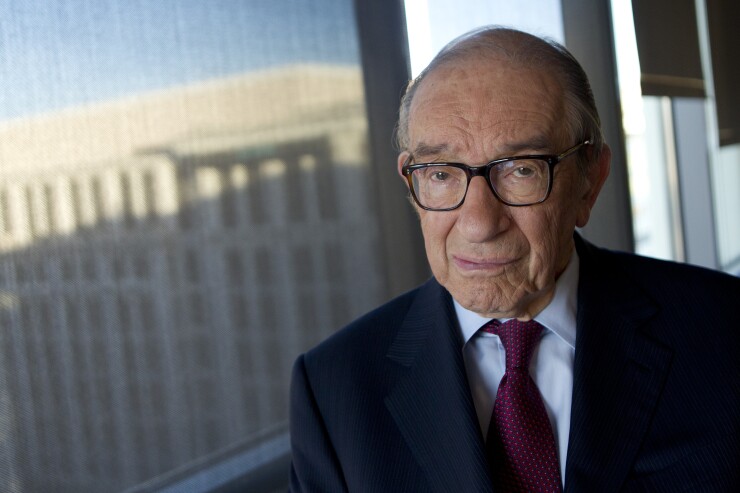Former Federal Reserve Chairman Alan Greenspan endorsed the idea that the U.S. central bank should be open to an insurance interest-rate cut, to counter risks to the economic outlook, even if the probability of the worst happening was relatively low.
“Forecasting is very tricky. Certain forecast outcomes have far more negative effects than others,” he said in a Bloomberg Television interview Wednesday. “It pays to act to see if you could fend it off.”

The Fed is widely expected to deliver a quarter-point cut when it meets next week to give the economy a bit of a cushion against uncertainties stemming from trade tensions and weakening global growth.
“I remember very distinctly on a number of occasions we cut rates not because we thought that it highly probable that it would be necessary,” but because the fallout from an event happening, if it happened, would be very large, said Greenspan, 93.
“You will act to reduce the risk of those types of events and that’s a vital thing to do,” he said.
Rate cuts by the Greenspan Fed in 1995-1996, and again in 1998 to help absorb shock waves from the collapse of Long-Term Capital Management during the Russian financial crisis, are viewed as a template that now-Fed chief Jerome Powell is open to following to sustain a record U.S. expansion.
“There are a lot of similarities with the Greenspan era,” said Thomas Costerg, senior U.S. economist at Pictet Wealth Management in Geneva. “Powell being a big fan of Greenspan, he will likely feel emboldened” in taking action by the former Fed chief’s remarks.
Investors are betting on three quarter-point cuts by the end of the year, according to pricing in federal funds futures contracts.
Greenspan also slammed trade tariffs as “a tax, not on your opponent, but on your own people. They pay the tax.”
“It was never true that somebody won a trade war,” he said.





